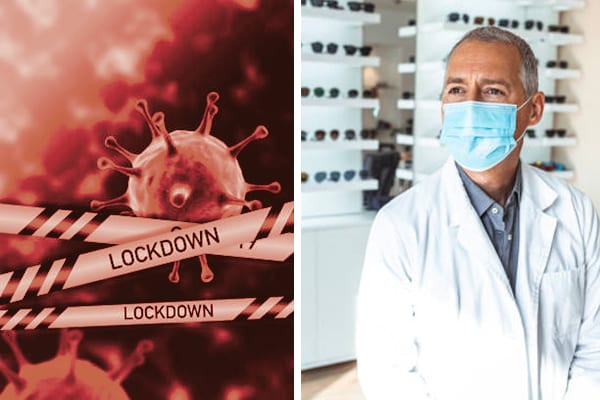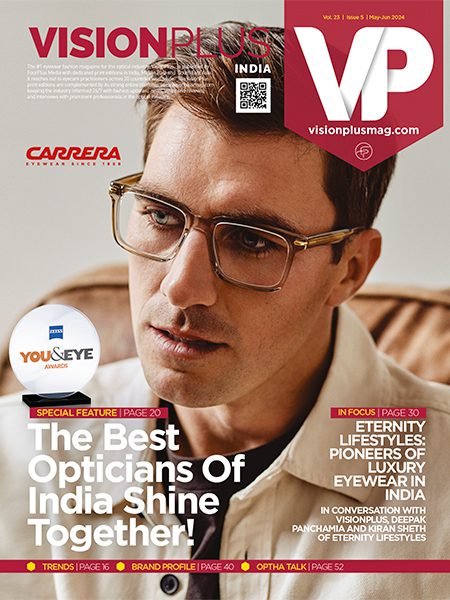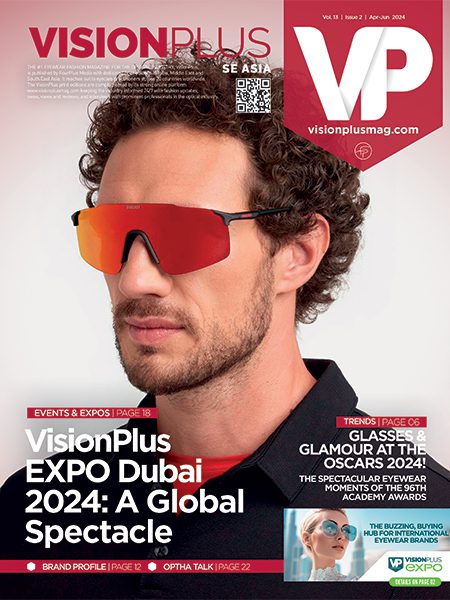Are Optical Shops A Part Of Essential And Emergency Services?
Due to the widespread and upsurge in the number of patients with the COVID -19 pandemic, some states have invoked Disaster And Management Act and declared lockdown of businesses. Ajeet Bhardwaj from Optique shares his views on the subject
As per the order dated 19th April 2021, issued by the Delhi Government carrying reference number F. 2/07/2020 pt file lll /381, states that only essential and emergency services are allowed to remain open.
However, states like Maharashtra have permitted optical services to remain open. But the Delhi Government was not ambiguous, so the President of Delhi Opticians Association Mr Anil Wadhwa wrote to Delhi Chief Minister Shri Arvind Kejriwal, for the inclusion of Optical services, under Essential and emergency services.
The Delhi Government allowed Opticians to remain open and provide emergency services to their customers. Are Optical services really an emergency?
Yes, of course, with valid reasons!
Those using glasses for distance with higher powers are practically blind without their glasses or contact lenses. Those above 40 years of age, and are using glasses only for reading, can become unproductive without their pair of reading glasses.
For those using contact lenses, their stock must be replenished with their due contact lens supplies, and a pair of contact lenses are emergency items for contact lens users.
A contact lens solution is equally important for inserting, removing, and storage of contact lenses. So for all arguments, all these items are essentials and can create an emergency to its users.
Internationally also, all four products have a uniform international HSN code to match with the international coding of products, and all these products are classified under medical products.
On February 11, 2020, the MInistry of Health in conduction with the drug controller office of India, broadened the definition of medical devices to include 37 items under medical devices.
As per the amendment made on 1st April 2020 Optical frames / optical lenses, contact lenses, contact lenses solution and Low Vision devices like telescopes, which were unregulated have now been placed under medical devices, at par with drugs and will be covered by Drug and Cosmetic Act 1940.
Spectacle frames, Optical lenses and Low vision telescopes are classified as Class A (low-risk) items, while Contact lenses are classified as Class B (low-medium risk) products. Contact lens solutions are classified as class C ( moderate-high risk ) products.
Since the services of Opticians are included as essential and emergency, like medical and pharmacy stores, then Optical services must be in the registration of Optical outlets like pharmacy shops with drug controllers.
To keep the safety of our public, these four products must undergo an ISO certification 13485 and follow standards and safety protocols, as provided in the amendment.
With the MDR amendment act, the registration of all optical shops / wholesalers distributors and manufacturers, was to follow with drug controllers in all states.
I learned that many state optical associations objected to the idea of registration citing that these items can’t cause harm to the public.
A wrong material of frame can cause severe allergy to a user, while a hazardous colour of frames if taken in child’s mouth can cause death, so the safety standards and protocols must be maintained.
All essential and emergency services must be registered in each state with respective health authorities and must follow the necessary rules laid down by state health authorities.
Optical services all over the world are a part of the eye health system, and not an ordinary trade. To be at par with the rest of the world, India adopted the GHTF countries recommendation, for classification of medical products . GHTF ( Global Harmonization Task Force was created in 1993 by US, EU countries, Australia and Japan, and more countries for uniform classification of medical products.
Since the Government has rightly put Opticians services under essential and emergency, all due protocols and registration must happen with the Drug controller of India, as per the provision made in the amendment for the safety of the public, and uniform standardization of products.
Disclaimer:
The views and opinions expressed in this article are those of the author. They do not reflect the views and opinions of VisionPlus and its members.






